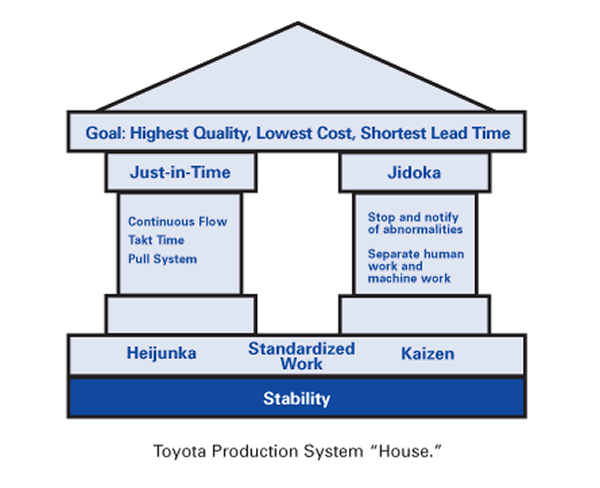What is TPS and why does Filium use it in every aspect of its engineering processes

The Toyota Production System (TPS) is a comprehensive manufacturing methodology developed by Toyota Motor Corporation, designed to improve efficiency, eliminate waste, and ensure high quality in the production process. TPS is built on two main pillars: Just-In-Time (JIT) and Jidoka (autonomation). Here’s a detailed look at what TPS entails:
1. Just-In-Time (JIT)
JIT is a strategy that aims to improve a businesss return on investment by reducing in-process inventory and associated carrying costs. Under JIT, each process produces only what is needed for the next process in a continuous flow. This approach helps in minimizing waste, reducing inventory costs, and improving production efficiency. Key components of JIT include:
- Takt Time: The rate at which products must be produced to meet customer demand.
- Flow Production: Ensuring that products move smoothly through each stage of the production process without delays.
- Pull System: Production is based on actual customer demand rather than forecasts. Products are pulled through the system based on orders rather than pushed based on predictions.
2. Jidoka (Automation)
Jidoka refers to automation with a human touch. It means that when a problem occurs, the machine stops immediately, and human intervention is required to fix the issue before restarting. This principle ensures that defects are caught and corrected early, preventing defective products from continuing through the production process. Key aspects of Jidoka include:
- Stop and Notify: Machines and operators stop when a problem is detected.
- Built-in Quality: Quality checks are integrated into the production process.
- Problem Solving: Root cause analysis is conducted to prevent the recurrence of issues.
3. Kaizen (Continuous Improvement)
Kaizen is a philosophy of continuous improvement where all employees, from management to the shop floor, work together proactively to achieve regular, incremental improvements to the manufacturing process. Kaizen focuses on making small, continuous improvements that can lead to significant long-term benefits. Practices under Kaizen include:
- PDCA (Plan-Do-Check-Act) Cycle: A four-step model for carrying out change.
- Employee Involvement: Encouraging suggestions and participation from all employees.
- Standardization: Establishing and following best practices to maintain improvements.
4. Heijunka (Production Leveling)
Heijunka is the practice of leveling production to smooth out the workflow and avoid periods of overproduction and underproduction. By producing smaller batches more frequently, manufacturers can better match production with customer demand, reduce inventory levels, and improve flexibility.
5. Standardized Work
Standardized work involves documenting and adhering to the best practices for each task within the production process. This ensures consistency, efficiency, and quality by providing clear instructions and expectations for workers.
6. 5S (Sort, Set in Order, Shine, Standardize, Sustain)
The 5S methodology is a systematic approach to workplace organization and standardization aimed at improving efficiency and safety. The five steps are:
- Sort: Eliminate unnecessary items from the workplace.
- Set in Order: Arrange necessary items for easy access.
- Shine: Keep the workplace clean.
- Standardize: Establish standards for organization and cleanliness.
- Sustain: Maintain and review standards regularly.
7. Value Stream Mapping (VSM)
Value Stream Mapping is a tool used to visualize and analyze the flow of materials and information required to bring a product to the customer. It helps identify waste and areas for improvement in the production process.
In summary, the Toyota Production System is a robust and effective manufacturing and to Filium a overarching engineering and product live cycle support methodology that emphasizes efficiency, quality, and continuous improvement. By implementing TPS principles such as JIT, Jidoka, Kaizen, Heijunka, standardized work, 5S, and VSM, organizations can achieve significant gains in productivity, reduce waste, and deliver higher quality products to their customers. TPS is not just a set of tools but a holistic approach to manufacturing that requires commitment and involvement at all levels of the organization.